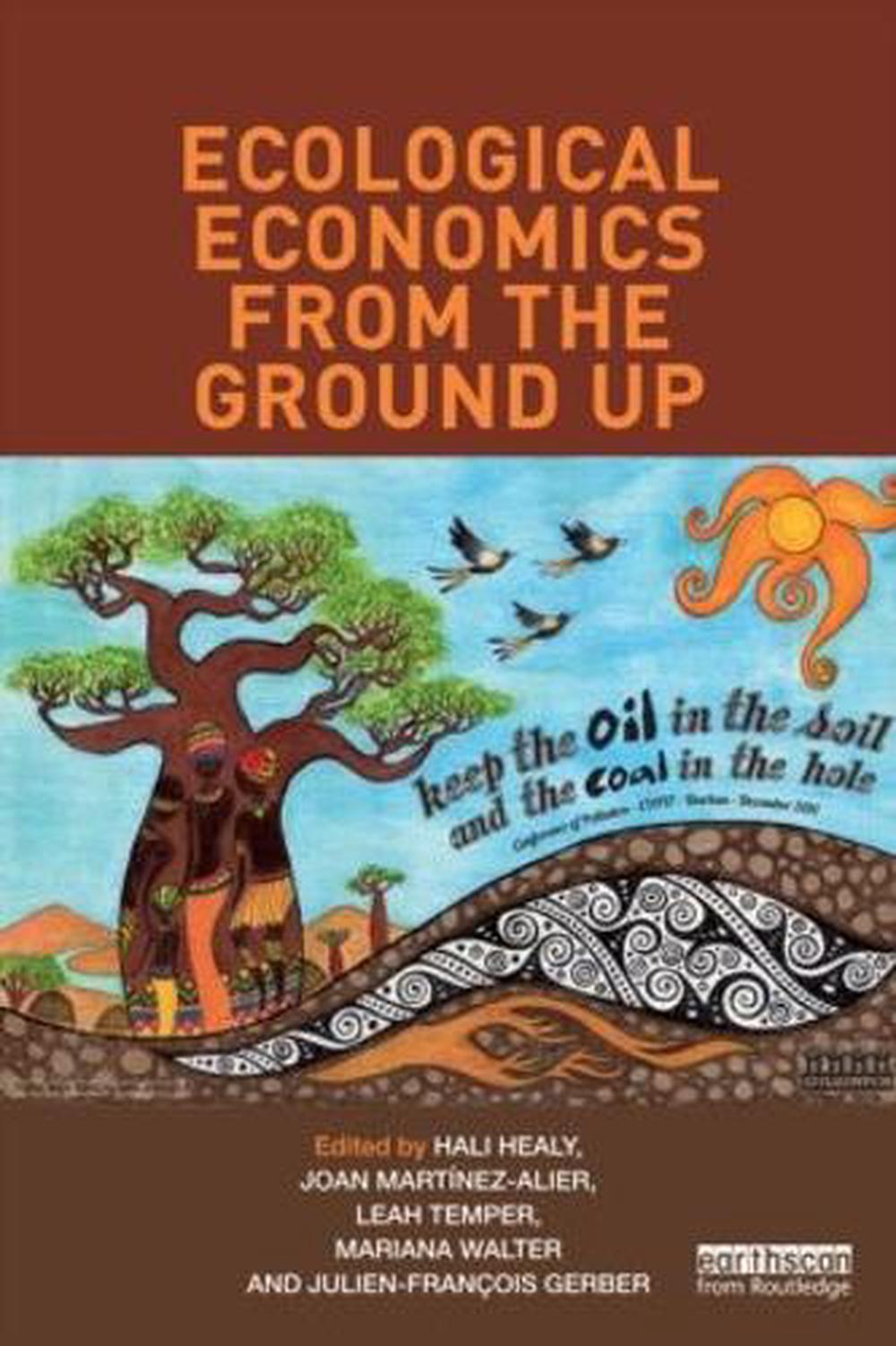
Ecological Economics from the Ground Up
$102.32
- Paperback
568 pages
- Release Date
19 December 2012
Summary
This book takes unique and much-needed bottom-up approach to teaching ecological economics, using case studies that focus on a wide range of internationally relevant topics, to teach the principles, concepts and tools of ecological economics and political ecology. Existing introductory books on ecological economics are oriented toward graduate level students with previous training in economics. They are also organized from first principles with emphasis on theory. This book evolved out of di…
Book Details
| ISBN-13: | 9781849713993 |
|---|---|
| ISBN-10: | 1849713995 |
| Author: | Hali Healy, Joan Martínez-Alier, Leah Temper, Mariana Walter, Julien-François Gerber |
| Publisher: | Taylor & Francis Ltd |
| Imprint: | Earthscan Ltd |
| Format: | Paperback |
| Number of Pages: | 568 |
| Release Date: | 19 December 2012 |
| Weight: | 1.10kg |
| Dimensions: | 234mm x 156mm |
What They're Saying
Critics Review
‘The scope and range of ideas dealt with in Ecological Economics from the Ground Up are of a gigantic scale. This book represents one serious effort by an international group of researchers, under the direction of one of the finest ecological economists of our time - Professor Joan Martínez-Alier, to enrich and validate the approaches, frameworks and methods of ecological economics. This has been done in a true tradition of interdisciplinarity, with the application of a range of innovative approaches, from social metabolic accounting to valuation to participation. This book represents a truly remarkable effort and will be a delight to read for practitioners in and outside of academic life.’
Pushpam Kumar, Chief Economist, UNEP
‘Ecological Economics from the Ground Up is just what is needed for the times: down-to-earth documentation of how to fight bad economics with good economics, how to fight economic interests with an economics that empowers the public’s interest in social justice and environmental sustainability. This book provides what is needed now: documentation of successful and on-going efforts from the bottom up to reshape the future along with a glossary of key concepts that challenge business as usual.’
Richard Norgaard, University of California, USA
‘In this pioneering example of what the European Commission calls ‘co-operative research’, the authors have genuinely succeeded in articulating a diversity of often-conflicting disciplinary and societal perspectives around pressing social and environmental policy challenges around the world.
[…] A coherent set of central ideas and approaches are explored through an impressive array of empirical case studies. These span a wide range of contrasting industrial sectors and socio-ecological contexts, extending across both northern and southern global settings. The emphasis throughout is on international, environmental and institutional interconnections. The breadth of analysis also extends beyond the often-narrow disciplinary domains, to encompass often-neglected dimensions of culture and power, as well as economic, biophysical and technological dynamics.
[…] The final product should find an enthusiastic readership among policy makers, lobbyists, activists and environmental managers in business, in addition to academic researchers in the range of disciplines addressed: economics and political science, as well as various areas of environmental science and policy analysis.’
Andrew Stirling, University of Sussex, UK
About The Author
Hali Healy
Joan Martinez Alier is professor of Economics and Economic History, Universitat Autonoma de Barcelona, a founding member and past president of the ISEE (Int. Society for Ecological Economics), a member of the scientific committee of the EEA (2000-2008), and a member of the advisory board of the TEEB project. His main research lines include: environmental history, the foundations of ecological economics, ecological distribution and valuation, North-South environmental conflicts and environmental justice, and biodiversity conservation. Hali Healy is co-author and Deputy Manager of CEECEC (2008-10), and has coordinated key dissemination events and collaborative science-CSO workshops. She has also organised other projects and events related to advocating links between Science and Society, including a roundtable event at the first International Conference on Economic Degrowth in Paris in 2008, and a recent (January 2010) conference in London designed to bring together researchers, policymakers and CSOs to discuss network building for an alternative economic model for sustainable degrowth. Hali has served as an expert at EC workshops on Science in Society collaboration
Returns
This item is eligible for free returns within 30 days of delivery. See our returns policy for further details.




